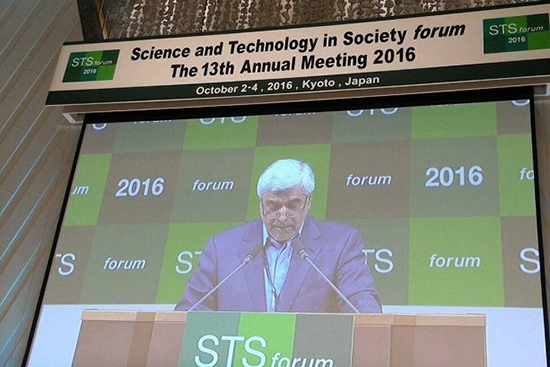
Mohammad Farhadi, Irainian Minsiter of Science and Technology, made the remarks on Monday at the population and resources panel of the 13th Annual Meeting of Science and Technology in Society (STS) forum in Kyoto, Japan.
He maintained that while population and resources pose great challenges to countries, the urbanization process and brain-drain migration have worsened the situation.
“Iran with 80 million people ranks 17th in the world in regard to its population and resources,” he said. “It also shares borders with 15 countries and is home to 2.5 million refugees.”
He went on to add, “11 million people in Iran, that is 1.7% of the population, have a university degree, and 5 million are studying at student and research centers.”
“The brain-drain phenomenon, however, has had adverse effects on our sustainable development,” he stressed.
Farhadi described brain-drain as human capital flight, adding “when a country allocates huge expenses for training and educating its people, the migration of its well-educated citizens to other countries becomes a matter of great concern.”
“Today, the world needs joint cooperation to tackle this problem,” he said. “We require new ideas that could stop brain-drain and human capital flight.”
“The world needs to expedite its efforts to provide the condition for the return of the experts to their own country,” he said.
Iranian Minister of Science and Technology heading a delegation arrived in the Japanese city of Kyoto Saturday night to attend the 13th Annual Meeting of Science and Technology in Society (STS) forum on 2-4 October.

Add new comment